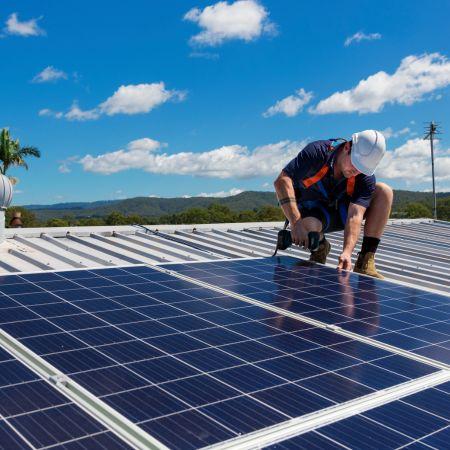Boost for community battery plan
Noosa is a step closer to owning one of Queensland’s first community batteries with Council on Monday endorsing a plan to begin contract negotiations with not-for-profit Yarra Energy Foundation (YEF).

The proposed community battery will store excess solar power that properties with solar panels feed into the grid during the day. The battery will then discharge the stored renewable energy back onto the grid to meet demand for electricity at night.
Council secured a $500,000 federal government Batteries for Household Solar grant in February, in partnership with YEF and not-for-profit Zero Emissions Noosa Inc (ZEN Inc).
“This is an exciting pilot for Council and Zero Emissions Noosa Inc, which has done a lot of the work in the background to make this initiative happen,” Mayor Clare Stewart said.
“We look forward to consulting with the community on key aspects of the project including the exact location for the battery at Noosaville, the suburb chosen by the federal government.”
Council’s Carbon Reduction Project Officer Annie Nolan said community batteries act as giant sponges, soaking up unused renewable energy that household solar panels feed into the power grid by day.
“They store that renewable energy from the sun then discharge it back to the grid at night when demand for power is greatest,” Ms Nolan said.
“It means homes connected to the power grid where the battery is located use less coal power at night as they’re drawing from the solar energy fed to the grid by the battery, which ultimately helps bring down emissions.”
Zero Emissions Noosa Inc welcomed the progress on the battery partnership.
“Zero Emissions Noosa Inc. sees this as a great step forward in the move towards cleaner energy for the Noosa community,” Chair Anne Kennedy said.
“The work done by ZEN Inc., Council and Yarra Energy Foundation over the last two years is helping the Noosa community to benefit from cleaner energy locally,” she said.
Mayor Stewart said the battery would also provide Council with a revenue source, which could be reinvested into further emission reduction initiatives.
“The battery charges by day when energy prices are low due to the oversupply of solar energy being fed into the grid by solar customers’ panels,” she said.
“When it discharges the stored renewable energy back to the grid at night to supply the local network, Council will receive a higher price for it, creating a revenue stream.”
Noosa is one of just six councils among the 52 entities to receive federal funding for batteries, with most of the grants given to distribution network service providers such as Energex.
“With community ownership of the battery, renewable energy and potential revenue stays local,” Ms Nolan said.
In a further benefit, Ms Nolan said batteries could reduce power grid pressures.
“Power grids were designed as one-way systems so they’re under increasing pressure from the feed-in of unused energy by customers’ solar systems during peak sun hours.
“Batteries take that excess power off the grid and store it, which may help overcome the need for costly power grid upgrades in the future - so batteries ultimately help keep electricity costs down.”
Council’s decision to negotiate directly with not-for-profit Yarra Energy Foundation to oversee delivery of the battery is expected to be ratified on Thursday.
“Yarra Energy Foundation (YEF) is currently the only not-for-profit organisation operating an 'in-front-of-the-meter' community battery for community benefit and emissions reduction, so we stand to benefit greatly from their experience,” Ms Nolan said.
“Their experience in this space has already proven invaluable in helping us secure the federal funding for this project. It’s one of seven successful grant applications they’ve now been involved with.”
